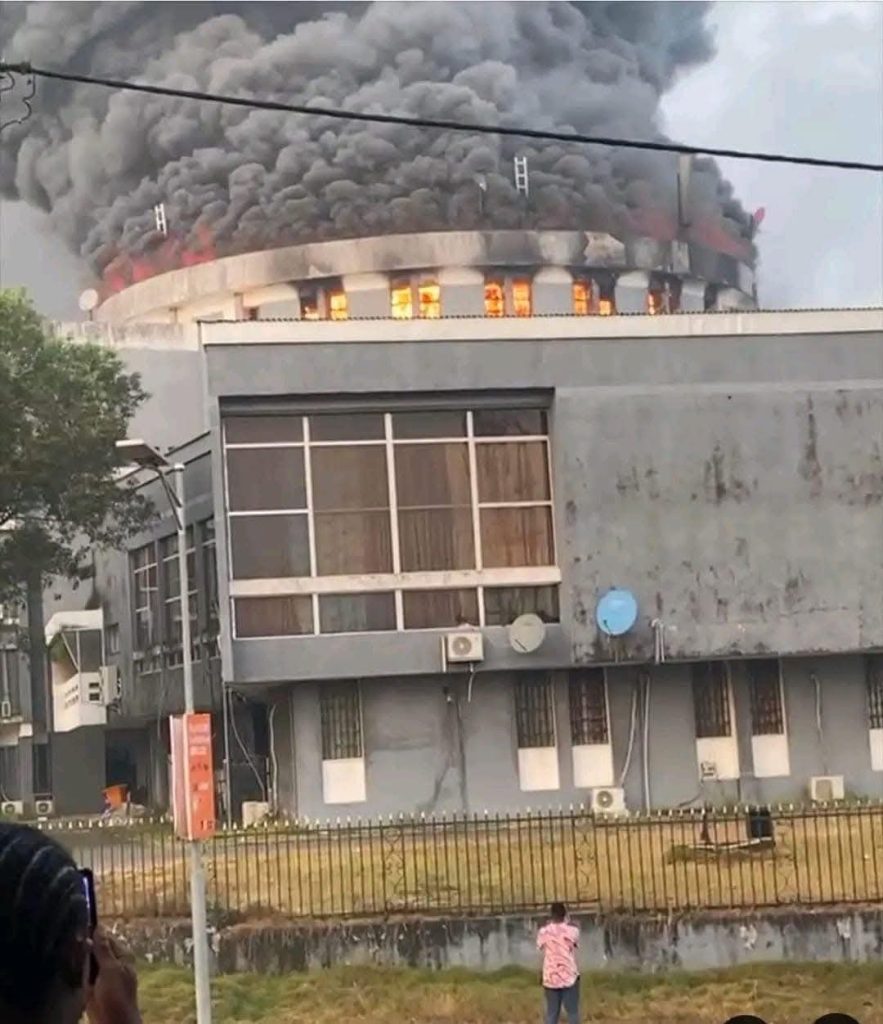The escalating political turmoil within Liberia’s House of Representatives, culminating in the arson attack on the Capitol Building, serves as a stark reminder of the consequences of prioritizing popularity over competence in electoral processes. The Liberian electorate, by repeatedly opting for charismatic but unqualified individuals, has inadvertently empowered a cadre of self-serving politicians who prioritize personal enrichment over national progress. These individuals, often lacking the necessary experience and understanding of governance, resort to disruptive and often destructive tactics to resolve conflicts, mirroring the behaviors they exhibited prior to assuming office. They treat political positions as avenues to wealth accumulation, neglecting the crucial responsibility of providing effective leadership and hindering the nation’s development.
The current crisis within the House of Representatives underscores this troubling trend. The legislative body, intended to be a beacon of reasoned debate and policy formulation, has become a stage for political grandstanding and power struggles, driven by individuals ill-equipped for the complexities of governance. The arson attack on the Capitol Building symbolizes the destructive consequences of this political immaturity and the disregard for democratic processes. It is a blatant attack on the very foundation of Liberian democracy and a stark reflection of the urgent need for electoral reform and a shift in the electorate’s mindset. This cycle of electing unqualified individuals perpetuates a system where political maneuvering and self-interest take precedence over national development. The Liberian people deserve better, and the responsibility ultimately rests with them to demand higher standards from their elected officials.
Ambassador Nathaniel Barnes’ poignant observation, “A country gets the type of leadership it deserves,” rings true in the Liberian context. The electorate’s continued susceptibility to populist rhetoric and their failure to critically assess the competence of candidates has created a political landscape dominated by individuals ill-suited for leadership. This pattern of voting based on sentiment and superficial appeal has fostered a culture of impunity and disregard for democratic principles. The resulting political instability and lack of progress hinder Liberia’s development and perpetuate a cycle of underachievement. Breaking this cycle requires a fundamental shift in voter behavior, one that prioritizes competence, experience, and a demonstrated commitment to the nation’s welfare.
President Boakai’s handling of the Speakership crisis further exemplifies the leadership deficit plaguing the nation. His decision to take sides in the dispute, rather than acting as a unifying force, demonstrates a lack of the statesmanship required to navigate complex political situations. Given his extensive experience in government, President Boakai should have leveraged his position to mediate the conflict and ensure a resolution in accordance with established legal procedures. Instead, his public endorsement of a specific candidate, even in defiance of a Supreme Court ruling, exacerbates the crisis and undermines the rule of law. This action not only fuels political tensions but also sets a dangerous precedent for disregarding judicial authority, further eroding the foundations of Liberia’s democratic institutions.
President Boakai’s failure to act as a neutral arbiter underscores the broader issue of leadership accountability in Liberia. As the nation’s highest-ranking official, he bears the responsibility of upholding the constitution and ensuring the smooth functioning of government. By taking sides in the legislative dispute, he not only undermines his own authority but also contributes to the erosion of public trust in government institutions. This lack of impartial leadership exacerbates existing political divisions and hinders efforts to address the nation’s pressing challenges. A true statesman would prioritize national unity and stability over partisan interests, working to bridge divides and foster a climate of cooperation.
The path forward for Liberia requires a collective effort to prioritize competence over popularity in the electoral process. The electorate must critically assess candidates based on their qualifications, experience, and demonstrated commitment to serving the nation. This requires a shift in mindset, moving away from emotionally driven decisions and embracing a more discerning approach to choosing leaders. Furthermore, holding elected officials accountable for their actions and demanding transparency and adherence to the rule of law are crucial steps towards fostering a more responsible and effective government. Ultimately, the future of Liberia rests on the choices of its citizens and their willingness to demand better from their leaders. The current political crisis serves as a wake-up call, highlighting the urgent need for change and the importance of prioritizing competence, integrity, and national interest above all else.














